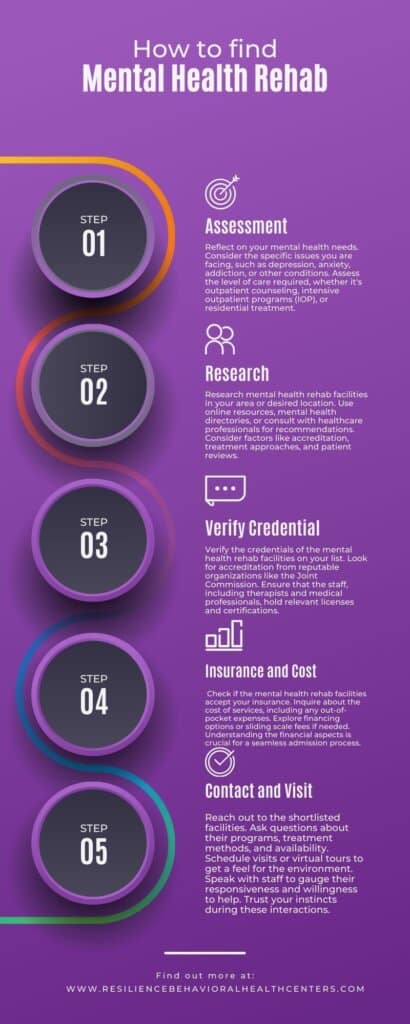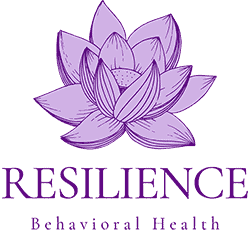Co-Occurring Disorders Programs in Massachusetts
According to the National Institute of Drug Abuse, around 9.2 million Americans suffer from co-occurring disorders.
Mental health is a critical aspect of our overall well-being, and when faced with challenges, it is essential to seek practical and targeted support. One often overlooked aspect of mental health is co-occurring disorders, where an individual experiences both a mental health disorder and substance abuse issues simultaneously.
In Co-Occuring Disorders Programs in Massachusetts, specialized programs at the Mental Health Treatment Center offer comprehensive approaches to address co-occurring disorders and provide individuals with the support they need for recovery.
What is a Co-Occurring Disorder?
A co-occurring disorder, also known as dual diagnosis, refers to the presence of both a mental health disorder and substance abuse issue. These conditions often interact, exacerbating each other’s symptoms and making treatment more complex. Recognizing the signs of co-occurring disorders is crucial to facilitate timely intervention and improve outcomes.
Common Types Seen in Co-Occurring Disorders Programs Massachusetts
Understanding the common types of co-occurring disorders is crucial for individuals seeking help and for mental health professionals providing targeted interventions.
Depression and Alcohol Use Disorder (AUD)
Depression, characterized by persistent feelings of sadness and hopelessness, often coexists with Alcohol Use Disorder. Individuals may turn to alcohol as a form of self-medication to alleviate the emotional pain associated with depression.
Conversely, excessive alcohol consumption can exacerbate depressive symptoms, creating a cyclical relationship that requires specialized treatment.
Anxiety Disorders and Substance Abuse
Anxiety disorders, including generalized anxiety disorder, social anxiety disorder, and panic disorder, frequently co-occur with substance abuse. Individuals with anxiety may use substances such as alcohol or benzodiazepines to manage their symptoms temporarily. However, substance use can lead to increased anxiety over time, intensifying the original mental health condition.
Bipolar Disorder and Substance Use
Bipolar disorder, characterized by extreme mood swings between depressive and manic states, often coexists with substance use. During manic episodes, individuals may engage in impulsive and risky behaviors, including substance abuse.
Conversely, the depressive phase may lead to self-medication with drugs or alcohol to alleviate feelings of despair.
Post-Traumatic Stress Disorder (PTSD) and Substance Abuse
PTSD, a condition that can develop after experiencing a traumatic event, frequently co-occurs with substance abuse. Individuals with PTSD may use substances as a way to cope with intrusive memories, nightmares, and hypervigilance. Unfortunately, substance use can worsen the symptoms of PTSD and impede the recovery process.
Attention-Deficit/Hyperactivity Disorder (ADHD) and Substance Use
Individuals with ADHD may be more vulnerable to developing substance use disorders. The impulsivity and difficulty concentrating associated with ADHD can contribute to engaging in risky behaviors, including substance abuse. Conversely, substance use can further impair attention and exacerbate symptoms of ADHD.
Schizophrenia and Substance Abuse
Schizophrenia, a severe mental health disorder characterized by disorganized thinking and hallucinations, may co-occur with substance abuse. Some individuals with schizophrenia may use substances to self-medicate, attempting to alleviate distressing symptoms. However, substance use can worsen the cognitive and emotional challenges associated with schizophrenia.
Borderline Personality Disorder (BPD) and Substance Use
BPD, marked by intense and unstable relationships, self-image, and emotions, often coexists with substance abuse. Individuals with BPD may turn to substances to cope with emotional instability and impulsivity. The unpredictable nature of BPD symptoms can make it challenging to address both the mental health and substance use aspects effectively.

Typical Symptoms You Shouldn’t Ignore in Co-Occurring Disorders Programs in Massachusetts
Behavioral Changes
Identifying co-occurring disorders requires attention to behavioral changes. Individuals may exhibit increased irritability, difficulty concentrating, and changes in sleep patterns. Sudden mood swings or extreme emotional reactions can also be indicators. Recognizing these behavioral shifts is the first step toward understanding the complexity of co-occurring disorders.
Physical Changes
Physical symptoms can manifest alongside mental health issues and substance abuse. Unexplained weight loss or gain, changes in appetite, and altered energy levels may be observable. Additionally, frequent illnesses or complaints related to physical health may signal an underlying co-occurring disorder.
Social Changes
Changes in social behavior are significant red flags. Withdrawal from friends and family, neglect of personal relationships, and avoiding social activities can all be indicators of co-occurring disorders. Individuals may also need help maintaining employment or academic responsibilities.
Best Treatment Options Available in Co-Occurring Disorders Programs in Massachusetts
Recognizing the intertwined nature of co-occurring disorders programs in Massachusetts, specialized programs in Massachusetts provide tailored treatment approaches to address both mental health and substance abuse issues. Here are some effective treatments employed in these programs:
Cognitive Behavioral Therapy (CBT)
CBT is a popular therapeutic strategy that aims to recognize and alter unfavorable thought patterns and behavior patterns. In the context of co-occurring disorders, CBT helps individuals understand the relationship between their mental health and substance use, providing them with practical tools to manage both.
Therapists work collaboratively with clients to identify distorted thought patterns contributing to both conditions. By challenging and restructuring these thoughts, individuals gain a more realistic and balanced perspective, empowering them to make healthier choices regarding substance use.
Dialectical Behavior Therapy (DBT)
DBT is another evidence-based therapy that combines cognitive-behavioral techniques with mindfulness strategies. It mainly addresses co-occurring disorders by promoting emotional regulation and interpersonal effectiveness. DBT equips individuals with skills to cope with distress without resorting to substance use.
Furthermore, it emphasizes cultivating mindfulness, encouraging individuals to be fully present in the moment without judgment. This practice enhances emotional regulation, helping individuals manage intense emotions that often contribute to both mental health and substance use issues. Individuals can break the cycle of impulsive and destructive behaviors by developing awareness and acceptance.
12-Step Programs
In Massachusetts, Mental Health Treatment Centers often integrate 12-step programs, such as Alcoholics Anonymous (AA) or Narcotics Anonymous (NA), into their treatment plans. These programs provide a supportive community where individuals can share their experiences and work towards recovery with the guidance of a structured program.
Additionally, it fosters a supportive community where individuals share their experiences, strengths, and hopes, creating a sense of camaraderie crucial for sustained recovery.
Co-Occuring Disorders Programs in Massachusetts – Best Options
Resilience Behavioral Health
Resilience Behavioral Health is a recognized center for treating co-occurring or dual diagnoses. Treating the underlying causes of drug use disorders brings them great satisfaction. This can include the trauma brought on by drug abuse or underlying conditions like anxiety, bipolar disorder, and trauma.
Bayridge Hospital Drug Rehab Massachusetts
Bayridge Hospital provides both inpatient and outpatient care. Through the use of a dual-diagnosis program, they specialize in treating addiction and co-occurring mental health symptoms. Apart from offering group, family, and individual therapy, the facility also provides various partial hospitalization programs (PHP) for the treatment of addiction.
Aftermath Treatment Center
Staff members at Aftermath Treatment Centre consider it an honor to handle treatment plans in a way that no other treatment facility does. Love, empathy, and direction are the three most essential components that form the foundation of their treatment planning. However, they provide and employ additional tried-and-true clinical and medical methods.
Final Words
Addressing co-occurring disorders in Massachusetts requires a nuanced and comprehensive approach that considers both mental health and substance abuse issues. In Massachusetts, Mental Health Treatment Centers are crucial in providing effective treatments like CBT, DBT, and 12-step programs.
By understanding the interconnected nature of co-occurring disorders and seeking help from dedicated treatment centers, individuals can embark on a path toward lasting recovery and improved mental well-being.
One small step will put you on the road to recovery. Reach out, and let us guide you toward a brighter, healthier future. Don’t wait – healing begins now! Visit our website for more information; better yet, contact us now to get a personalized treatment plan for your exact symptoms, call 888.401.1179.


